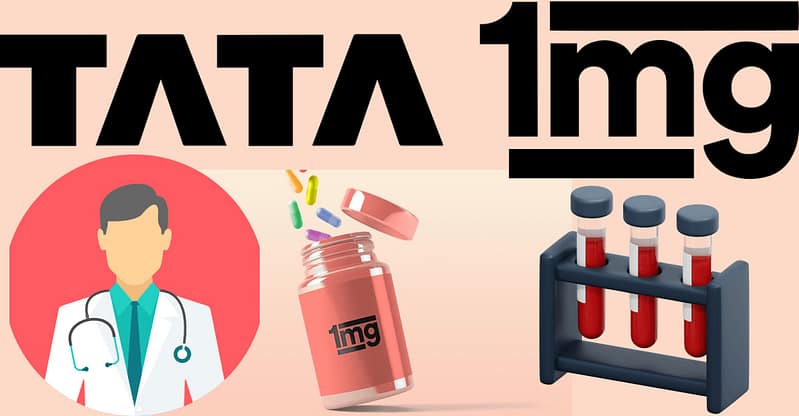A 42-year-old worker at Bajaj Finance died by suicide recently, citing unbearable work pressure and mental torture by his seniors. He locked his wife and two children in a room before taking the drastic step. In his suicide note, Tarun Saxena details his struggles to meet recovery targets, despite his best efforts, and the humiliation he faced from his seniors.
He mentions that he hadn’t slept for 45 days, had barely eaten, and was under immense stress. He also apologised to his family and asked them to take care of each other. “I am very tense about the future. I have lost my ability to think. I am going,”. “Mummy, Papa, I have never asked for anything, but am doing so now. Please get the second floor built so that my family can stay comfortably,” he added in the note.
Police said that his body was found by the house help along with the note addressed to his wife Megha. “Tarun Saxena was working at Bajaj Finance as an area manager. He committed suicide on Sunday using a dupatta,” Superintendent of Police (City) Gyanendra Kumar Singh told
“A suicide note was also recovered from him in which he alleged that he was given a higher target by seniors, and pressure was continuously being mounted on him to achieve the said target,” he added. The family is alleging that “mental torture” by his seniors led Tarun to take his life.
Tarun’s cousin, Gaurav Saxena, alleged that his seniors, including the regional manager and national manager at the company, mentally tortured him during a virtual conference a day before he died.
“In the morning, he was mentally tortured by his regional manager and national manager. Abuses were also hurled at him during a conference, which was held virtually. He was quite frustrated since that night, following which he took the extreme step (on Sunday),” Gaurav told reporters. “He was told that in case of non-fulfillment of the target, he would have to pay from his pocket. He was assigned areas like Moth and Talbehat for collection, which are rural,” he added.
The incident comes just days after a worker at accounting firm Ernst and Young (EY) died allegedly due to “overwork”. The incidents have sparked a nationwide debate on workplace pressure. 26-year-old Anna Sebastian, who worked at EY’s Pune office for around four months, died in July. Her mother wrote to EY India Chairman Rajiv Memani earlier this month and flagged the “glorification” of overwork at the consulting firm.
India’s young professionals are sounding the alarm on workplace stress, and the numbers are impossible to ignore. According to the Emotional Wellness State of Employees Report from wellness platform YourDOST, an overwhelming 64 percent of employees aged 21 to 30 are battling high stress levels. These findings expose a growing mental health crisis in the workforce, as younger employees face mounting pressures both on and off the job.
The report, which surveyed over 5,000 employees across industries, also reveals that the workplace has become a battleground for mental and emotional well-being, with stress levels rising across the board. From navigating the challenges of hybrid work to juggling personal expectations, India’s youngest workers are feeling the heat like never before.
Gopinath, chief psychology officer at YourDOST, shares insights on supporting younger employees in the workplace. He notes, “The shift in workplace dynamics, the evolution of remote and hybrid work models, has had an impact on the 21-30 age demographic. To support them, organisations should prioritise regular communication and engagement. Implementing frequent pulse surveys allows us to keep a finger on the pulse of our employees’ needs and challenges. We’ve also seen hosting regular webinars and company-wide programs foster community and synergy, bridging the gap between age groups.”
The report further indicates that stress is not just work-related. Self-improvement (35 percent) and relationship issues (33 percent) are the top reasons why employees seek counseling. Career anxiety also plays a significant role, highlighting the need for companies to provide more holistic employee support, covering everything from career guidance to mental health and personal growth.
The finding from the survey is the gap between men and women when it comes to stress at work. Nearly 72.2 percent of female respondents reported high-stress levels, compared to 53.64 percent of men. Women cited the constant struggle to maintain a work-life balance, a lack of recognition, low morale, and the ever-present fear of being judged as the major stressors.
The National Institute of Mental Health (NIMH)Trusted Source recognize two types of stress: acute and chronic. These require different levels of management.
The NIMH also identifies three examples of types of stressors:
Routine stress, such as childcare, homework, or financial responsibilities
sudden, disruptive changes, such as a family bereavement or finding out about a job loss. traumatic stress, which can occur due to extreme trauma as a result of a severe accident, an assault, an environmental disaster, or war.
Acute stress is short-term and usually the more common form of stress. Acute stress often develops when people consider the pressures of events that have recently occurred or face upcoming challenges shortly. For example, a person may feel stressed about a recent argument or an upcoming deadline. However, the stress will reduce or disappear once a person resolves the argument or meets the deadline.
Acute stressors are often new and tend to have a clear and immediate solution. Even with the more difficult challenges that people face, there are possible ways to get out of the situation.
Acute stress does not cause the same amount of damage as long-term, chronic stress. Short-term effects include tension headaches and an upset stomach, as well as a moderate amount of distress. However, repeated instances of acute stress over an extended period can become chronic and harmful. Chronic stress develops over a long period and is more harmful.
Ongoing poverty, a dysfunctional family, or an unhappy marriage are examples of situations that can cause chronic stress. It occurs when a person can see no way to avoid their stressors and stops seeking solutions. A traumatic experience early in life may also contribute to chronic stress.
Chronic stress makes it difficult for the body to return to a normal level of stress hormone activity, which can contribute to problems in the such as cardiovascular, respiratory, sleep, immune, reproductive etc
A constant state of stress can also increase a person’s risk of type 2 diabetes, high blood pressure, and heart disease. Depression, anxiety, and other mental health disorders, such as post-traumatic stress disorder (PTSD), can develop when stress becomes chronic.
Chronic stress can continue unnoticed, as people can become used to feeling agitated and hopeless. It can become part of an individual’s personality, making them constantly prone to the effects of stress regardless of the scenarios that they encounter.
People with chronic stress are at risk of having a final breakdown that can lead to suicide, violent actions, a heart attack, or stroke.
People react differently to stressful situations. What is stressful for one person may not be stressful for another, and almost any event can potentially cause stress. For some people, just thinking about a trigger or several smaller triggers can cause stress.
There is no identifiable reason why one person may feel less stressed than another when facing the same stressor. Mental health conditions, such as depression, or a building sense of frustration, injustice, and anxiety can make some people feel stressed more easily than others.
Common major life events that can trigger stress include job issues or retirement, lack of time or money, bereavement,family problems. illness
moving home.relationships, marriage, and divorce,Other commonly reported causes of stress are: abortion or pregnancy loss,driving in heavy traffic or fear of an accident,fear of crime or problems with neighbors
pregnancy and becoming a parent,excessive noise, overcrowding, and pollution,uncertainty or waiting for an important outcome
Some people experience ongoing stress after a traumatic event, such as an accident or some kind of abuse. Doctors will diagnose this as PTSD.
Those who work in stressful jobs, such as the military or the emergency services, will have a debriefing session following a major incident, and occupational healthcare services will monitor them for PTSD.
A 2022 study by Trusted Source found that the stressors that parents experience, such as financial troubles or managing a single-parent household, may also lead to obesity in their children.
Stress-related Emotional reactions can include Anger, burnout, concentration issues, fatigue, a feeling of insecurity, forgetfulness, irritability, nail biting, restlessness,sadness,Stress-associated behaviors include: food cravings and eating too much or too little, sudden angry outbursts, drug and alcohol misuse, higher tobacco consumption,social withdrawal, frequent crying, relationship problems,If stress becomes chronic, it can lead to several complications, including anxiety,depression
heart disease, high blood pressure, lower immunity against diseases such as muscular aches, sleeping difficulties, stomach upset, erectile dysfunction (impotence), and loss of libido.
Diagnosing stress can be challenging because it depends on many factors. Doctors have used questionnaires, biochemical measures, and physiological techniques to identify stress. However, these may not be objective or effective. The most direct way to diagnose stress and its effects on a person is through a comprehensive, stress-oriented, face-to-face interview. Treatment includes self-help and, when an underlying condition is causing stress, certain medications. Therapies that may help a person relax include aromatherapy and reflexology.
Some insurance providers cover this type of treatment. However, it is important for people to check coverage with their provider before pursuing this treatment. Knowing the details about a potential treatment can help prevent it from adding to any ongoing stress.
Doctors will not usually prescribe medications for coping with stress, unless they are treating an underlying illness, such as depression or an anxiety disorder. In such cases, they may prescribe an antidepressant. However, there is a risk that the medication will only mask the stress, rather than help the person deal with it. Antidepressants can also have adverse effects, and they may worsen some complications of stress, such as low libidoTrusted Source. Developing coping strategies before stress becomes chronic or severe can help an individual manage new situations and maintain their physical and mental health. People who are already experiencing overwhelming stress should seek medical assistance.




















